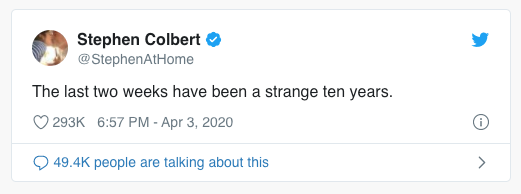Does God live in Greek time? (Experiencing time as growth)
J. Hathaway
- 10 minutes read - 1973 wordsDoes God live in Greek time? (Experiencing time as growth).
Relational theology focuses on man’s relationship with God. However, in pondering a relationship with God, time is the first concept that throws Christians into a mental tailspin. We can pull out of this death spiral. However, to untangle God and time, we have to understand Eastern and Western (Greek) views of time. I am of the firm opinion that Western perceptions of time do not constrain God.
Many of my early posts were on the subject of time. I asked, “Does God live within time?” and then went through a few different latter-day scriptures about time to provide an interpretation that fits within the openness paradigm.1 At that point, I didn’t understand how entrenched Western perceptions of time were engrained in my friends. I think we may have been debating the definition of time, not God’s state in the eternities.
Recently, I discovered my perceptions of time were in line with the Eastern view. I discussed my first encounter with Eastern views of time in a post I wrote using Wendy Ulrich’s metaphor of time as a rhythmic drumbeat to help us understand how the Hebrews viewed time (Understanding the Rythm of ‘one eternal now’). Her message is in line with a recent book that I read. In fact, I think she may have read it.
Thorleif Boman wrote Hebrew Thought Compared with Greek where he has a 50-page chapter on Time and Space which compares Western thought to Hebrew thought. Just before I started his book, I read a fantastic article in the Scientific American titled, ‘Time Has No Meaning at the North Pole’ that provided a great understanding of time without all the constraints of our modern culture. Her article arrived just before the COVID19 lockdown in most of the United States. I think some of us have felt hints of warped perceptions of time during the pandemic.
In this post, I will cover Western, Eastern, North Pole, COVID-19, and Twighltight Zone time. However, I think that the North Pole, COVID-19, and Twighlight Zone discussions are largely to help us see the difference between Eastern and Western time. As we go on this journey, I invite you to think about how you think about time and if it exists eternally.
Greek or Western time
I admit that I think in Western perceptions of time most of my day. I think we would all resonate with Thorleif’s quote;
Western minds represent time as a straight line upon which we stand with our gaze directed forward; before us, we have the future and behind us the past. On this line, we can unequivocally define all tenses by means of points. The present is the point on which we are standing, the future is found at some point in front of us, and in between lies the exact future; behind us lies the perfect, still farther back the imperfect, and farther yet the pluperfect. (Pg 124)
I have heard Plato’s perceptions in the next quote very often in discussions with traditional Christians and members of my faith. I think it is misguided. Plato’s concept of the ’tooth of time’ not being able to affect God is probably the critical point about God and time that puts many Christians into a thought tailspin.
In Plato’s thinking eternity is spatial not in the sense that it is three-dimensional, and still less four-dimensional. But only in the sense that it is without alteration, hence without unrest, disturbance, privation, decay, and destruction. The ’tooth of time’ does not gnaw upon [eternity]. (Pg. 128)
Hebrew time
Thorleif’s quotes are plentiful and insightful about how the Hebrews conceive of time, space, and counting. I created another quote post that has many more quotes from his book. Below are a few of them that provide valuable insight into the ways that the Hebrews (Eastern) viewed time.
Time for [westerners] is an abstraction since we distinguish time from the events that occur in time. The ancient Semites did not do this; for them, time is determined by its content. Time is the notion of the occurrence; it is the stream of events (Pg. 139)
For us, the turn of the year is the time when the annual cycle is at an end; for the Israelites, it is the time when the beginning of the year returns. (Pg. 135)
The shortest time in Hebrew is not a point, nor a distance, nor a duration, but a beat. … the Israelites understood time as something qualitative, because for them time is determined by its content. (Pg. 136-137)
The act of numbering has originally to do with the conception of the I, thou, and he. A common etymological root for the expression ‘you’ (thou) and ’two’ appears to have been established especially for the Indo-European languages. It is now very interesting to be able to establish that the Hebrew expression for ’two’ has nothing to do with ’thou’, or with any other person; nor is there behind it any other perception of visible objects such as two eyes, two ears, two fingers, etc. ‘shenayim’ comes from the verb ‘shanah’ - double, repeat, for the second time. Thus the Hebrews form the concept of number not as we do through visual perception but through frequent repetition of the same motion. … Number or quantitative variety is thus not something spatial and quantitative but dynamic and qualitative. The twice-done movement is a duplicate, the thrice-done a triplicate, etc. We, too, are familiar with such units or representation and designate them as rhythms; a rhythm is a definite number or unit of repetitions. (Pg. 165-166)
Time at the North Pole
The Scientific American recently declared Time Has No Meaning at the North Pole from a post by Katie Weeman. Listen to here description of time after her experience with the North Pole and how her Western ideas of time disappear.
At the North Pole, 24 time zones collide at a single point, rendering them meaningless. It’s simultaneously all of Earth’s time zones and none of them. There are no boundaries of any kind in this abyss, in part because there is no land and no people. The sun rises and sets just once per year, so ’time of day’ is irrelevant as well.
…
If drifting without established time zones isn’t alienating enough for people onboard, add the unsettling reality that there is no time of day either. What we think of as a single day, flanked by sunrise and sunset, happens just once per year around the North Pole. Once polar night takes over, there is only relentless darkness.
…
The ship operates like a windup toy, disconnected from the spinning of the planet, which normally dictates time. “Time” is just an operational ritual, intended to create the illusion of regularity.
…
Weeks and months blur together. There’s no television, no news, no people passing by. Holidays come and go without festive displays in supermarkets or incessant holiday songs on car radios. The very concept of “December” feels fabricated. Each repetition of the operational rituals between subsequent periods of sleep feels identical, like living the same “day” again and again.
…
The only thing that truly reminds the team that time still ticks forward is data collection. [The] … monitoring [of] the ever progressing data gives them a sense of the forward arrow of time.
…
When scientists leave the Polarstern, they experience true timelessness. Some instruments are set up miles away on the ice, reachable only by helicopter. It’s so dark. True silence. All sense of time is irrelevant. [Each] researcher’s head is heavily bundled from the cold, so all they hear is the beating of their own heart. That rhythm becomes the only tangible measure to track the passing of time.
…
Maybe time is defined not by numbers or zones or the spinning of Earth—but by what we experience. When I entered my house, I was eagerly greeted by my dogs. I fed them their dinner—their favorite “time” of day. Right about then, researchers on the ship were eating a bowl of warm oats before hitting the ice—“time” to check those instruments again.
Time during COVID19
I know many of us have been feeling the shock to our perceptions as our traditional way of defining time has been challenged. All of our typical patterns that remind us we are on Wednesday or Saturday or Sunday are gone. We can’t differentiate time on the Greek past-present-future timeline because we have no spatial points on it at which we can reference. Every day feels the same concerning spatial views of time. The Los Angeles Times explained why some of us feel like time is oddly quick during COVID-19, which was also the topic in an article in The Star.
Notice the following two tweets and how they line up quite well with the North Pole article above.


Time in the Twighlight Zone
Henry Bemis has ‘Time enough at last’ in Episode 8 of The Twilight Zone. You can watch the entire video on CBS.com. I love the last three minutes for their explanation of time. As Henry walks through the remains, the Twighlight voice says, “Seconds, minutes, hours; they crawl by on hands and knees to Mr. Bemis.” Henry is in despair when he realizes that everyone is gone and that there will be no growth in his life. At the moment he resigns to take his life, he notices that he is sitting within the remains of the public library and his love for books gives him hope. He chants, “Books, Books, all the books I’ll need. All the books I want.”
After organizing all the books he wants to read, he says in joy;
The best thing, the very best thing of all, is there’s time now. All the time I need and all the time I want. Time. Time. Time. There is time enough at last.
At this moment, we see the eternal time. The time where we grow and learn continually. In his joy, he reaches to grab another book, and his glasses fall off and break, leaving him blind. In despair he says;
That’s not fair at all. There was time now. There was all the time I needed. That is not fair. That is not fair.
Notice how time takes on a gestalt in Mr. Bemis’ quotes. I see a slight shift from time as an accumulation of points to time as entangled with content. But, if we cannot create or grow in time then it can cease to exist. Especially after all perceptions of Western time have been stripped away.
Does God live in Eastern time?
Yes. He lives with us. He grows with us. He loves with us. Our scriptures bear record of God’s involvement in the details of our lives. They bear record of his journey with us. ‘God revealed himself to the Israelites in history and not in Ideas; he revealed himself when he acted and created. His being was not learned through propositions but known in actions.’2 Time must have its ground in being: either the same thing is always happening, or else we are becoming within a fullness of time. Without Eastern conceptions of time, we fall short in understanding time in eternity.3
-
Is time only measured unto men (Alma 40:8)?, Time is no longer? (D&C 84:100, D&C 88:110, Revelation 10:6), The Lord Does the Future (1 Nephi 9:6), It’s about time (Abraham 3 and D&C 130), Does God have a future?, and Understanding the ‘End from the Beginning’ (Abraham 2:8) ↩︎
-
Page 171 of Thorleif Boman’s Hebrew Thought Compared with Greek ↩︎
-
Becoming must have its ground in being; then either the same thing is always happening, or else becoming is something other than previous being. (Thorleif Boman’s Hebrew Thought Compared with Greek, Pg. 169) ↩︎